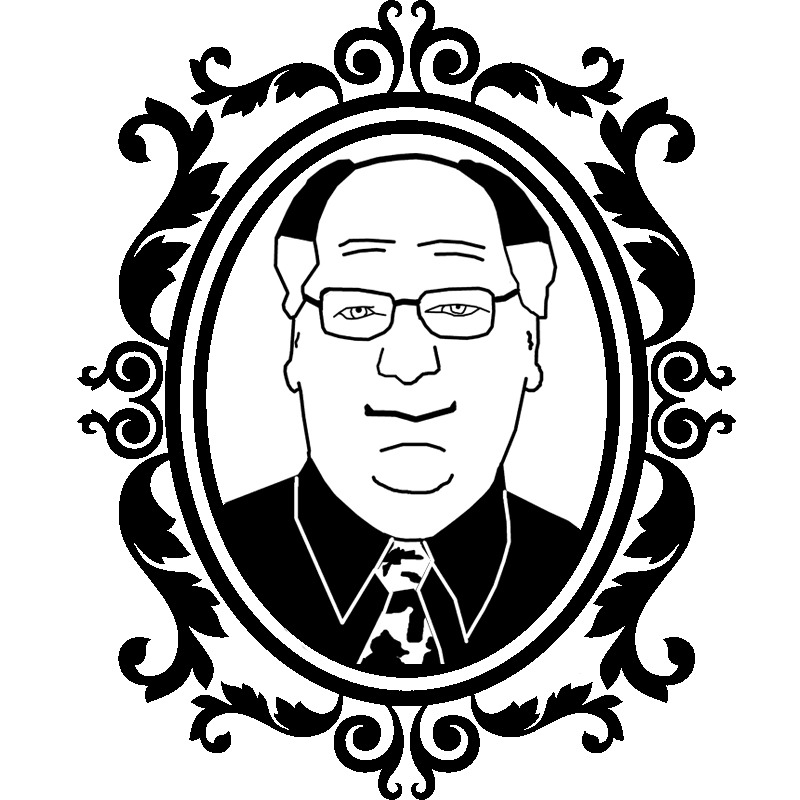✍️ Shel Silverstein Biography – Whimsy, Wit & Wild Genius

Shel Silverstein in a classic head-and-shoulder portrait
Shel Silverstein was a literary misfit in the best possible way. With a crooked grin and a pen dipped in absurdity, he turned poems into playgrounds and children’s books into subversive masterpieces. His style was unmistakable: darkly funny, strangely wise, and always dancing on the edge of rebellion. To millions, he was the voice of childhood mischief; to others, a cult hero who refused to color inside the lines.
Shel Silverstein was a poet, songwriter, cartoonist, and playwright whose work crossed genres and audiences. His books like Where the Sidewalk Ends and The Giving Tree remain fixtures of children’s literature, while his songs, including Johnny Cash’s hit “A Boy Named Sue,” showed his sharp wit and lyrical skill. His cartoons in Playboy and his offbeat plays revealed an artist who resisted labels and embraced creative risk. Silverstein’s career proved that imagination could be mischievous, tender, and timeless all at once.
Born into a working-class Chicago family, Silverstein wasn’t the type you’d expect to reshape children’s literature. He flunked out of college, served in the military, and drew cartoons before anyone thought to take his writing seriously. But that was the secret he never chased the spotlight, and yet it found him anyway. His words had a rhythm that felt like music, and often, they were.
Shel Silverstein’s career defied categorization. He was a poet, a playwright, a musician, a cartoonist, and a songwriter sometimes all in one day. From his early days with Playboy magazine to penning the Grammy-winning “A Boy Named Sue” for Johnny Cash, he danced freely across genres, industries, and expectations. Everywhere he went, he left a trail of laughter, raised eyebrows, and dog-eared pages.
But it was in his books Where the Sidewalk Ends, The Giving Tree, and A Light in the Attic that Silverstein carved out his permanent place in the hearts of readers. He spoke to children without ever talking down to them, trusting their ability to understand nuance, pain, and the beautiful weirdness of the world. And they loved him for it.
Shel Silverstein didn’t just write for kids, he wrote for the curious, the misfits, and anyone who’s ever felt that the world asked too much of them.
👶 Early Life
Shel Silverstein was born Sheldon Allan Silverstein on September 25, 1930, in Chicago, Illinois. Raised in the city’s Logan Square neighborhood, he was the son of Jewish immigrants and grew up during the Great Depression. From a young age, Shel showed more interest in drawing and daydreaming than academics. He once joked that he couldn’t play sports, couldn’t get girls, and didn’t do well in school so he picked up a pencil and started doodling.
He attended Roosevelt High School and later enrolled at the University of Illinois, only to flunk out. He eventually found his footing at the Chicago Academy of Fine Arts and then Roosevelt University. But it wasn’t until he joined the U.S. Army in the 1950s and began submitting cartoons to Stars and Stripes that his distinctive humor and artistic style began to take shape. His military experience would later influence his irreverent take on the absurdities of life and authority.
Explore the Biographies of Icons in Music
📚 Books & Literary Legacy of Shel Silverstein
Shel Silverstein’s first major success as an author came with Uncle Shelby’s ABZ Book (1961), a satirical twist on children’s primers that was anything but child-friendly. Published under his Playboy persona “Uncle Shelby,” it gave readers their first taste of his offbeat humor and sly social commentary. Though it wasn’t a mainstream hit, it set the tone for the kind of irreverent, boundary-pushing work that would define his career.
His true breakthrough came in 1964 with The Giving Tree, a deceptively simple story about a boy and a tree that left readers debating its meaning for decades. Some saw it as a tale of selfless love; others read it as a cautionary allegory about selfishness and sacrifice. Either way, it became one of the most controversial and enduring children’s books of all time. Silverstein didn’t care what readers thought it was their job to interpret, and his job to provoke.
In 1974, Where the Sidewalk Ends cemented his status as a literary icon. This collection of poems, filled with oddball characters and philosophical nonsense, was unlike anything on the children’s market. Illustrated with his own sketches, the book combined playful language with emotional depth, making it a favorite for both kids and adults. Classics like “Sarah Cynthia Sylvia Stout” and “Boa Constrictor” demonstrated his genius for mixing humor with unexpected truth.
A Light in the Attic (1981) pushed even further. With poems about pirates, broken parents, upside-down logic, and wild imaginations, it stirred both critical praise and parental controversy. Some schools tried to ban it for being too dark or subversive proof that Silverstein had succeeded in his mission to speak honestly to children, without sugarcoating life’s absurdity.
His posthumously published works, including Falling Up (1996) and Every Thing On It (2011), continued his tradition of blending sharp wit with childlike wonder. Even decades after his death, his books remain classroom staples, bedtime favorites, and sources of comfort and rebellion for young readers who recognize themselves in his mischievous verse. Silverstein didn’t just write books he created entire worlds where imagination ruled, and rules were optional.
📘 Where the Sidewalk Ends – Special Edition by Shel Silverstein
Step into the unforgettable world of Shel Silverstein with this expanded edition of his timeless poetry collection, Where the Sidewalk Ends. This special version includes 12 extra poems and showcases Silverstein’s trademark blend of humor, wisdom, and imaginative wordplay.

Shel Silverstein’s most beloved collection now with 12 bonus poems!
• Includes 12 additional poems exclusive to this edition
• Features beloved characters like Sarah Cynthia Sylvia Stout and the Bloath
• Perfect for all ages from early readers to nostalgic adults
• Beautifully illustrated with Silverstein’s original drawings
• A classic gift for birthdays, holidays, and graduations
From boys turning into TV sets to girls eating whales, this book is a playground of wit, wonder, and gentle chaos. Where the Sidewalk Ends continues to be a gateway to poetry and creative thinking for readers young and old.
🎭 Theater & Stage Work
While best known for his poetry and children’s books, Shel Silverstein had a passionate, often overlooked love for the stage. His theatrical writing, like the rest of his work, was unpredictable, biting, and laced with dark humor. He wasn’t interested in traditional storytelling he wanted to challenge audiences, make them uncomfortable, and laugh at the absurdity of life all at once.
In the late 1980s and early ’90s, Silverstein began writing short plays that reflected his twisted sense of humor and sharp ear for dialogue. Many of these one-act plays were later collected in the posthumously released anthology Shel's Shorts, and several gained wider exposure through stage performances and festivals. His plays often featured bizarre premises like a man negotiating with a hangman, or a couple arguing over who gets to sleep with a dead body always delivered with wit and an undercurrent of truth.
Shel Silverstein theatrical work gained renewed attention with An Adult Evening of Shel Silverstein, a stage production first performed in 2001 by The Atlantic Theater Company. The play featured ten short, darkly comic scenes and monologues, each capturing Silverstein’s signature blend of satire, surprise, and storytelling mischief. Though intended for adult audiences, the absurdity and cleverness of the material echoed the voice that made him a legend in children’s literature.
Silverstein’s contributions to theater may not have received the same mainstream attention as his books or music, but they showed another side of his boundless creativity. On stage, just like on the page, he gave the audience something unexpected something that lingered. Whether they laughed, gasped, or squirmed in their seats, they remembered it.
🎶 Music & Songwriting Career
Johnny Cash - A Boy Named Sue (Live at San Quentin, 1969)
Shel Silverstein’s musical talent was just as wild, witty, and unpredictable as his poetry. A master lyricist with a knack for spinning stories into song, he carved out a parallel career as a songwriter for some of country and folk music’s biggest legends. From bawdy barroom tales to heartbreaking ballads, Silverstein’s songs carried his unmistakable stamp: mischievous, clever, and often disarmingly sincere.
One of his earliest and most famous successes was A Boy Named Sue, recorded by Johnny Cash. The live performance at San Quentin in 1969 became an instant hit, earning Cash a Grammy Award and giving Silverstein his place in music history. He followed up with more hits for Cash, including 25 Minutes to Go and The Ballad of Lucy Jordan.
Bobby Bare became one of Silverstein’s most frequent collaborators, recording entire albums of his work. Their 1973 concept album Lullabys, Legends and Lies featured tracks like Marie Laveau, The Winner, Rosalie’s Good Eats Café, and Daddy What If the last of which became a hit duet between Bare and his young son, Bobby Bare Jr. The pair reunited for the album Great American Saturday Night, which remained unreleased until decades later.
Dr. Hook & The Medicine Show scored some of their biggest hits with Shel Silverstein’s songs. He wrote The Cover of “Rolling Stone”, Sylvia’s Mother, Freakin’ at the Freakers Ball, and Carry Me, Carrie, blending outrageous humor with a dash of heartbreak. The band’s wild image matched Shel’s lyrical style perfectly rowdy, raunchy, and a little bit broken.
Burl Ives, known for his gentle folk style, recorded Silverstein’s The People Upstairs, and Time, showcasing Shel’s ability to be both whimsical and unsettling in just a few verses. The Irish Rovers added Silverstein’s The Unicorn Song to their repertoire, turning a quirky poem into an international folk classic that’s still played today.
Silverstein’s influence reached across genres. Waylon Jennings cut tracks like The Taker and You Asked Me To (co-written with Billy Joe Shaver). Loretta Lynn, the queen of country herself, covered his songs with sass and soul. Even artists like Emmylou Harris, Kris Kristofferson, and Tompall Glaser dabbled in his material. Wherever wit, heartache, or rebellion was needed, Shel’s pen was ready.
Shel Silverstein also released his own albums, including Songs and Stories and I'm So Good That I Don’t Have to Brag, where his gravelly voice and dry humor came through loud and clear. Though never a chart-topping performer, Shel Silverstein left a lyrical legacy in music as rich and wide-ranging as his poetry one filled with characters, chaos, and unforgettable turns of
phrase.
🕊️ Later Years
In his final years, Shel Silverstein lived much as he had always done on his own terms. He split his time between a houseboat in Sausalito, California, and a home in Key West, Florida, writing constantly and continuing to create for both children and adults. Though he avoided the spotlight and rarely gave interviews, he remained a prolific force, producing songs, poems, and short plays well into the late 1990s. Friends described him as fiercely private but endlessly curious, always scribbling ideas in notebooks or picking up a guitar.
Shel Silverstein passed away suddenly from a heart attack on May 10, 1999, at the age of 68. His death shocked fans around the world, many of whom had grown up reading his words and carried his books into adulthood. Tributes poured in from musicians, writers, and educators who credited him with shaping their creativity and outlook. Though he left no public farewell, his work continues to speak volumes funny, fearless, and full of life.
Silverstein’s plays and adult poetry were often just as successful as his children’s works, showing his ability to navigate very different audiences.
🏆 Legacy
Shel Silverstein’s legacy is as multifaceted as the man himself spanning literature, music, theater, and beyond. He didn’t just write poems and songs; he reshaped the boundaries of what those forms could be. With his offbeat humor, fearless honesty, and refusal to conform, he inspired generations of readers and creators to embrace their quirks, question authority, and never outgrow their imagination.
In the world of children’s literature, Silverstein is irreplaceable. The Giving Tree, Where the Sidewalk Ends, and A Light in the Attic remain perennial bestsellers, read by parents, teachers, and kids who find both joy and wisdom in his words. His ability to treat young readers with respect never talking down or hiding life’s rough edges redefined what a children’s book could be. Schools, libraries, and homes continue to share his work decades after publication, proof that his voice still resonates.
His musical contributions endure as well, heard in jukeboxes, concerts, and classic country playlists around the world. Whether it’s Johnny Cash’s A Boy Named Sue, Dr. Hook’s Sylvia’s Mother, or Bobby Bare’s Daddy What If, Silverstein’s songs brought stories to life with humor, heartache, and unforgettable hooks. His lyrics turned simple tunes into storytelling masterclasses sometimes silly, sometimes devastating, always smart.
Shel’s impact was officially recognized by the U.S. Postal Service in 2022 with the release of a Forever stamp honoring his contribution to American culture. The stamp, featuring his distinctive illustration style and a nod to The Giving Tree, cemented his place among the literary legends who shaped a nation’s imagination.
Whether on the page, the stage, or the radio, Shel Silverstein’s work lives on delighting, challenging, and inspiring anyone brave enough to follow where the sidewalk ends.
🗣️ Why They Still Matter
Shel Silverstein’s impact is ongoing because he challenged norms in every medium he touched. His books remain staples in classrooms and homes, his songs echo across genres, and his rebellious spirit still inspires artists to push boundaries. His works prove you can speak honestly to children, live provocatively, and leave an imprint that outlives the author.
Further Reading & Resources
📖 Shel Silverstein Lyrics, Songs, and Albums - Genius
📰 Shel Silverstein | Biography, Books, & Facts | Britannica Profile

ML Lamp is the owner of Kilroy Was Here. After his 20 years of working in Las Vegas in the entertainment promotions field, Mr. Lamp retired in 2002 from his job to pursue his passion for collectibles. Now as a guest speaker and author he’s living the dream, and sharing his warmth with You.





